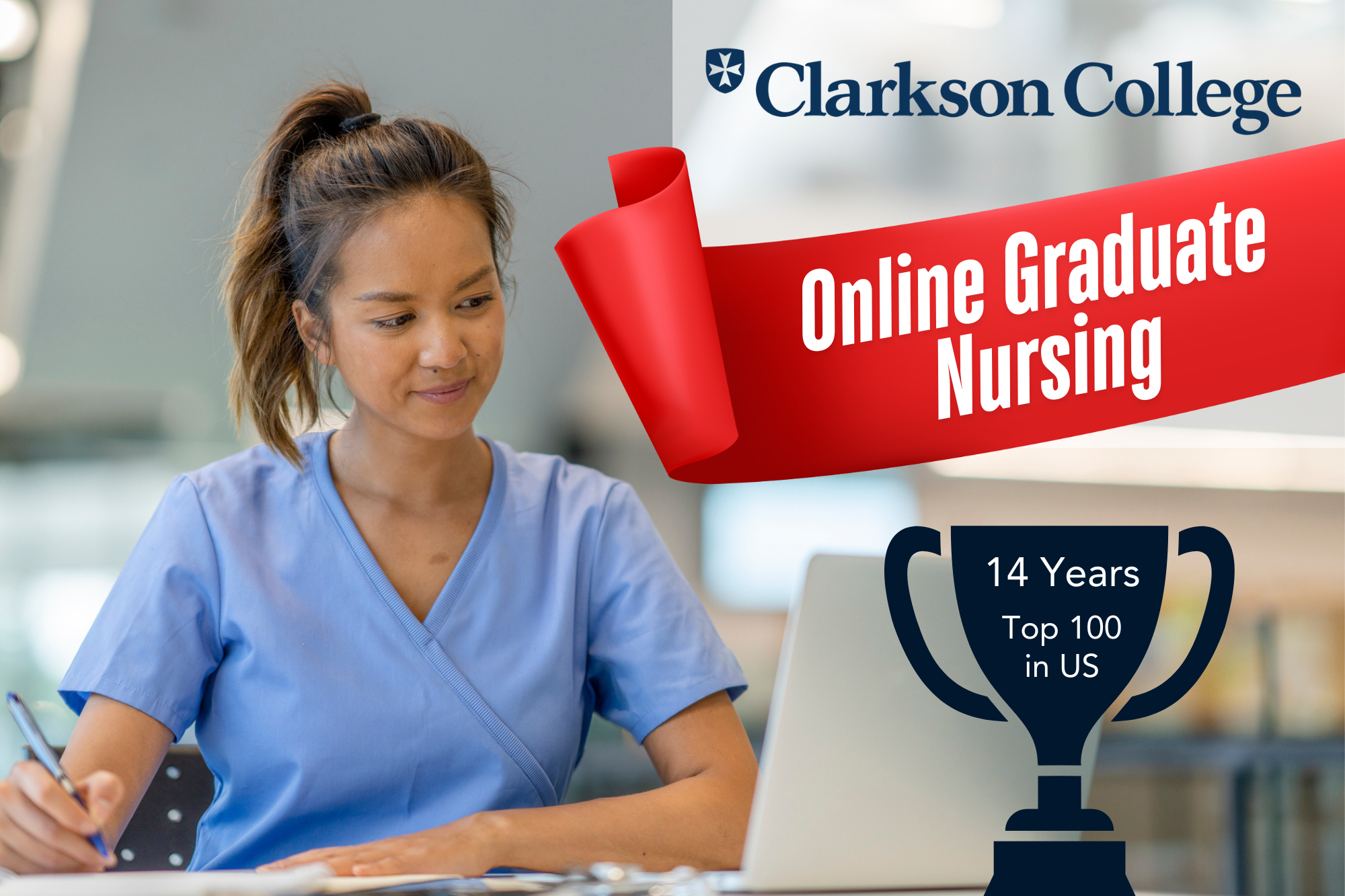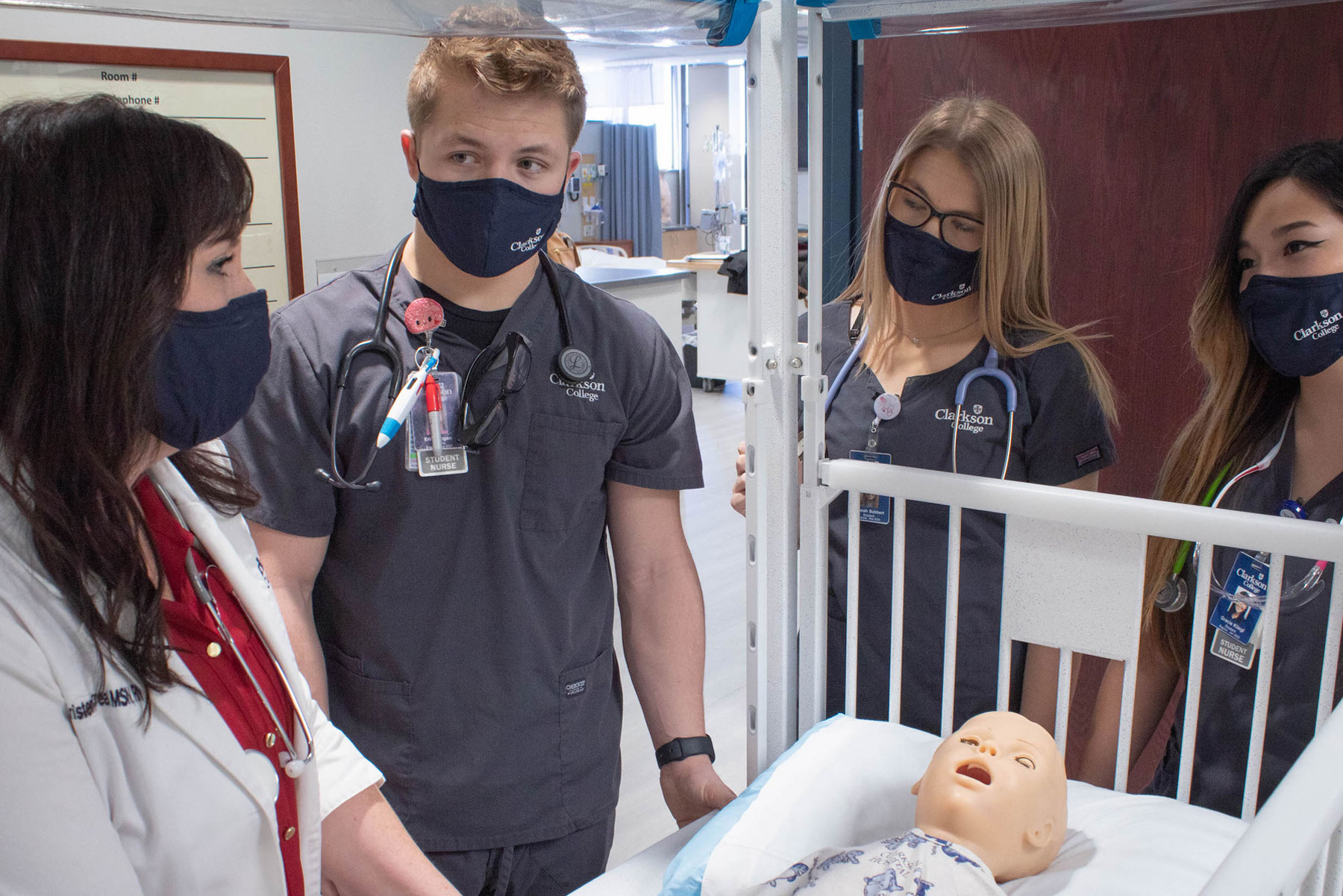

Education and training rooted in professionalism and clinical experience.
As a student of the Clarkson College nursing program, you'll learn from—and work alongside—professionally trained faculty and practicing clinicians dedicated to your success. The curriculum is carefully crafted and includes a robust clinical practicum to ensure your skills and knowledge are in line with the latest and best practices. Plus, both our in-person and online classes have a small student-to-faculty ratio, so you can get your questions answered and engage with your peers.
Flexible nursing programs that fit your busy schedule.
Most of our nursing programs can be completed on either a full-time or part-time basis. And we offer customized rapid program advancement options so you can progress on your own timeline. Plus, multiple start dates per year and rolling admissions mean you can begin earning your nursing degree when it works best for you.




